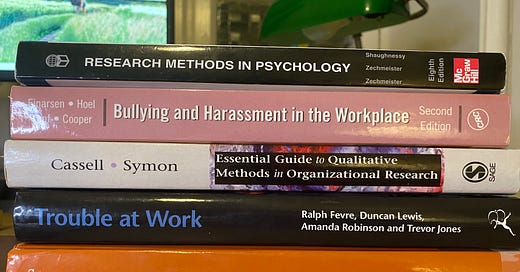What’s going on in the world of work and organizations?
Do you often feel caught in the continuous ebb and flow of new information that is bombarding you with potentially useful things that you just cannot miss out on? It’s usually articles or posts starting with phrases such as “new study finds…”, “ten data driven ways to improve X Y and Z”, “recent evidence suggests that…”. Although I deeply appreciate and love the opportunity to live in an age where information is so readily available, it can still be taxing to sift through it at times and constantly evaluate the merits of it, while trying to navigate an increasingly complex landscape.
The world of work and organizations is no exception in this regard. Every day new studies are published within fields focusing on the organizational sciences, HRM, business psychology, work science and the likes. As a researcher with a background in work and organizational psychology, it can be challenging to keep up with the literature, while also trying to communicate complex research findings to the general community in an accessible way.
I often find myself catching wind of a new study on sites like ResearchGate, Google Scholar, LinkedIn or similar, that may be incredibly interesting, but leaves me with a bunch of thoughts and questions to discuss. Naturally, as any socially normal academic (well, let’s save that discussion for another day), I badger my poor colleagues with these semi-intrusive thoughts. But I’d figure I’d spare them some of the pain (altruistically, instead aiming it at a wider audience) by starting this Substack, where I frequently will write about work and organizational research from a psychological perspective.
This could include nitty-gritty research focused posts, but since it’s an applied field of research, also practitioner-oriented texts where key takeaways (or at times, nuances) are provided in relation to just-of-the-press research.
In general, the aim is to share my thoughts on, and bring attention to, some of the research that is published on topics such as organizational behavior, psychosocial work environment, occupational health and well-being, leadership, employee retention, human resource management, and similar areas.
What is my background?
I have a PhD in psychology from Lund University, where I focused on work and organizational psychology. I wrote a doctoral dissertation on workplace mistreatment. More specifically: workplace incivility, which can be described as rude and discourteous behavior in the workplace, that typically has a low intensity, and an ambiguous intent. This includes things such as treating coworkers or supervisors in a derogatory way, not paying attention or listening to others, speaking over them, or throwing around condescending comments. I wrote my thesis about this specific type of workplace mistreatment from the vantage point of the bystanders, i.e. those who witness these types of behaviors in the workplace, and how it may relate to their own behavior, well-being, and perceptions of the work environment.
I have since been involved in several different research projects concerned with workplace mistreatment (such as workplace bullying from a bystander perspective, as well as cyberaggression), and perceptions of the psychosocial work environment. I am currently the principal investigator of a workplace intervention project focused on developing methods to promote civility and respect in organizations, working on connecting the dots between research and practice.
What will you find here?
On this site I might share some of our own research findings in a more digestible and less dense way than in a research article, but I might also write about completely different studies and recent findings within the work and organizational field from a psychological perspective. Specifically, I will regularly write about developments within the research field, how we can make sense of new research, and what applications that can be brought out from such studies.
The point is to keep it conceptual rather than technical, and relevant to practitioners as well as researchers within the field. So, if you’re looking for some short pieces that try to make at least a little more sense out of some of all of the complex information out there today about working life and organizations, you’ve come to the right place.



